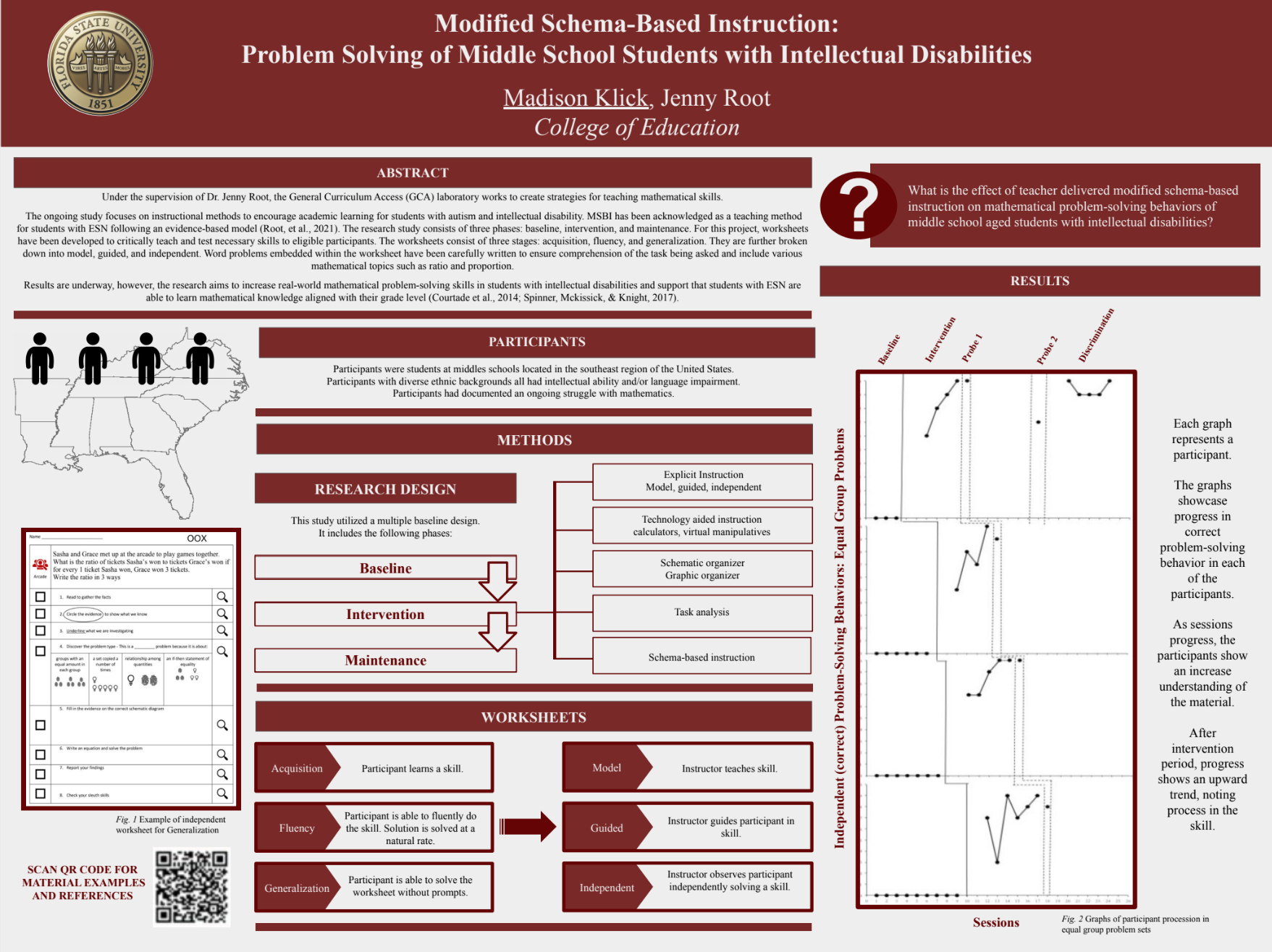Research Symposium
23rd annual Undergraduate Research Symposium, April 6, 2023
Madison Klick Poster Session 4: 4:00 pm - 5:00 pm/ Poster #271

BIO
Madison is a sophomore at Florida State University seeking a dual degree in Biological Sciences and Criminal Justice/Criminology with minors in Chemistry and Psychology. With this educational background, she wishes to spend her workforce years dressed in laboratory gear as a Forensic Biologist. In her time at FSU, Madison has devoted 2 years to research with the GCA lab. With UROP in freshman year being her introduction to the research community, Madison hopes to continue the path of research. In upcoming semesters, Madison is interested in research in the fields of biology, chemistry, and physics.
Modified Schema-Based Instruction: Problem Solving of Middle School Students with Intellectual Disabilities
Authors: Madison Klick, Jenny RootStudent Major: Biological Science, Criminology
Mentor: Jenny Root
Mentor's Department: Department of Teacher Education Mentor's College: College of Education Co-Presenters:
Abstract
Under the supervision of Dr. Jenny Root, The General Curriculum Access (GCA) laboratory works to create strategies for teaching mathematical skills.
The ongoing study focuses on instructional methods to encourage academic learning for students with autism and intellectual disability. MSBI has been acknowledged as a teaching method for students with ESN following an evidence-based model (Root, et al., 2021). The research study consists of three phases: baseline, intervention, and maintenance. For this project, worksheets have been developed to critically teach and test necessary skills to eligible participants. The worksheets consist of three stages: acquisition, fluency, and generalization. They are further broken down into model, guided, and independent. Word problems embedded within the worksheet have been carefully written to ensure comprehension of the task being asked and include various mathematical topics such as ratio and proportion.
Results are underway, however, the research aims to increase real-world mathematical problem-solving skills and students with intellectual disabilities and support that students with ESN are able to learn mathematical knowledge aligned with their grade level (Courtade et al., 2014; Spinner, Mckissick, & Knight, 2017).
Keywords: Instruction, disability, mathematics


